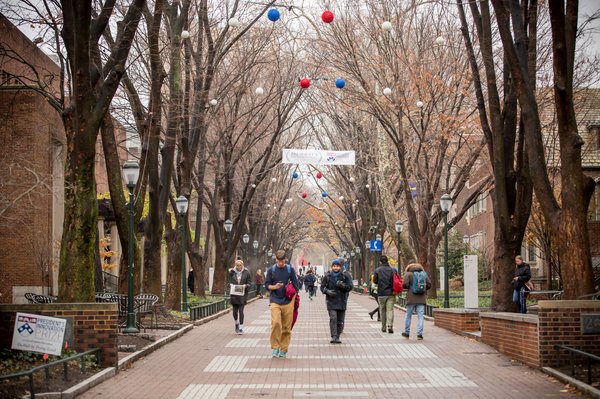A University of Pennsylvania graduate assistant's teaching method has sparked controversy, with critics labeling it discriminatory while supporters say it helps include marginalized students.
Some also say the online outrage has sparked harassment from white supremacists and Nazis.
Stephanie McKellop, a teaching assistant for a history class called "Sinners, Sex and Slaves: Race and Sex In Early America," tweeted on Monday that she will "always call on my Black women students first." She said after that she'll call on other minorities, then white women and after that, "if I have to, white men."
The tweet sparked a range of reactions. Michael Moroz, a Penn sophomore and member of the College Republicans, told The Daily Pennsylvanian the practice was "discriminatory" and that the university should fire her.
Geoffrey Miller, a psychology professor at the University of New Mexico, said on Twitter the practice was biased, but based on a common method called "progressive stack," which attempts to give students from typically marginalized groups a better chance to speak in class.
Others sprung to McKellop's defense, such as Nolan L. Cabrera, a educational-policy studies and practice professor at the University of Arizona, who defended progressive stacking in an article from The Chronicle of Higher Education.
“In college classrooms, it’s very common for people of privileged social identities to dominate conversations," he told the website.
That article was cited in a Philadelphia Daily News column from Helen Ubiñas, who noted that she appreciated one political science professor who forced her to speak up in class.
"As scary as it was to talk in class, it forced me to find and value my voice, and continue to find and value the voices of others whose voices have gone unheard," Ubiñas wrote, adding that she interpreted the method as trying to be inclusive.
Dominating much of the Twitter criticism of McKellop have been members of the so-called "alt right," who have been going after her repeatedly since the original tweet, according to her, those who support her and even critics like Miller.
McKellop has since made her Twitter account private, and she has declined to speak with media outlets. However, in a series of follow-up tweets, she suggested Penn was readying a press release to condemn her and said that her classes had been cancelled this past week.
In a statement, Dean of the School of Arts and Sciences Steven J. Fluharty said the school was looking into the matter, but added that McKellop had not been removed and that she would have "due process." Per Ubiñas' column:
“...contrary to some reports, the graduate student has not been removed from the program and we have and will continue to respect and protect the graduate student’s right to due process.”
“We are looking into the current matter involving a graduate student teaching assistant to ensure that our students were not subjected to discriminatory practices in the classroom and to ensure that all of our students feel heard and equally engaged.”

